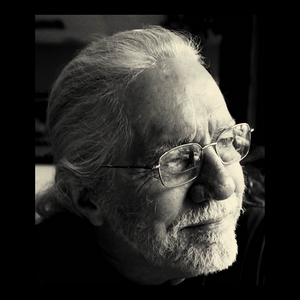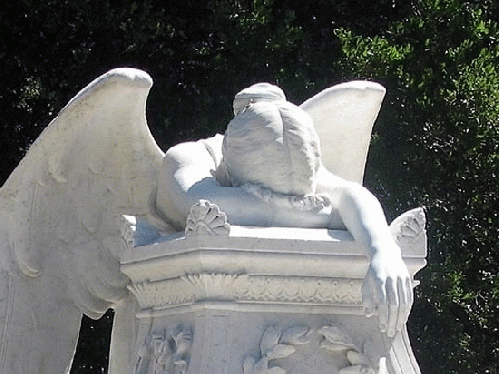When a friend asks, "With such a beneficent and munificent party, how could it have been so shellacked in 2016?" it's a question worth exploring. We've heard all the glib reasons, and we even listed them so that we could put them aside to better focus on better explanations. We explored the logical fallacy of conflating the Democratic Party with liberals. But what about the possibility that there are fundamental flaws in our system of government? Let's take a look.
If there is a single principle that ties liberals together, it's the ideal of democracy. They recognize that the control of the state can either be exercised by the people themselves, or it can be exercised by some other entity. Historically that other entity has either been an economic elite, a blood-line elite, or a military elite, typically in combination; liberals correctly view all of these as undesirable. A state constituted around democracy is an abiding and fundamental liberal ideal.
But from the beginning, democracy was an ideal that was far from the realities of the Republic. Not everybody had a say - slaves, Indians, and women were left out. In fact, the question of who would participate was left to the states, rather than the republic. The citizens whose interests were represented in the Constitution were the states themselves rather than the natural persons living in them. Democracy was set forth as an ideal, but its implementation - even its definition - was left to the states. And it varied widely from the beginning. Quakers in Pennsylvania viewed democracy in an entirely different light than plantation slavers in Virginia. States' rights has always been a rallying cry for the illiberal.
The compromises needed to forge a union remain with us today. The constitution of the US Senate empowered small states with an outsize voice. In 1780, a Virginia senator represented nine times more voters than did a Georgia senator. This amplified the voices of small states in a legislative body that was seen at the time as more advisory than powerful. This principle infected the Electoral College as well, though less extremely; voters in Georgia had a voice five times louder than their counterparts in Virginia.
So there was a problem with democracy two centuries ago, but it's since been taken care of, right? Sure African-Americans without a prison record can vote now. So can Native Americans, if they can obtain a qualifying identification. We even let women vote now. But what about those pesky power imbalances among the states? Today, a California senator represents 66 times as many voters than does a Wyoming senator. The problem has gotten worse, not better! And in the Electoral College today, voters in Wyoming have a voice eighteen times louder than their counterparts in California. Problem not solved.
A half-century ago, a movement to eliminate the Electoral College was alive and well - but so was the opposition, who at the time considered themselves among the minority. Those who successfully defended the electoral status quo actually cited the vulnerability of their beloved two-party system to the perceived threat of a direct popular vote. Also among their originalist arguments - and presaging today's war on science - was an attack on the legitimacy of numerical majorities. "Nothing could be clearer in the Framers' thought than their rejection of a merely numerical concept of representative government. If the Constitution stands for nothing else, it stands for the idea that mere numbers have no capacity to make legitimate that which is otherwise illegitimate - whether those numbers be 51 or 90 percent of the whole." In effect, the defenders of the college are saying that their interpretation of the Founders' intentions carries more weight than a 90- percent majority!
Who were these people, anyway? Knowing the authors can show us who gains from the perpetuation of this vile institution. They were senators from the southern states of Mississippi, Arkansas, North Carolina, and South Carolina - together with the small states of Nebraska and Hawaii. They included such racist luminaries as James O. Eastland and Strom Thurmond, who were understandably wary of the minorities within their own states.
If the Founding Fathers were around today, they would ask us why we haven't fixed this problem. After all, they provided a mechanism for amending their Constitution because they recognized that times, technologies, and even cultural values were likely to evolve. Article V of the US Constitution prescribes the process for amending the document itself, and allows the states, by a two-thirds majority, to call a convention to consider revisions without statutory limits. Madison himself claimed that Article V was designed to balance the interests of pliancy and rigidity - liberalism and conservatism.
That balance is no longer served - Constitutional amendments don't get passed anymore. And it's not like they're not needed - the Equal Rights Amendment has languished for decades while the outsize influence of small states continues to gather momentum. And there lies the problem - the states themselves. The Constitution was created to protect the interests of the states rather than the interests of natural citizens, and because the majority of the nation's natural citizens reside in larger states, the majority is under-represented. To the ideals of democracy, this is anathema. And it yields control of its government by the people to the control of large and special interests. The Founders would argue that the Constitution ought to guide our growth and development toward the ideals that we all accept - ideals like democracy itself.
So why do liberals lose? Standard explanations can't be entirely ignored. And maybe the failure of liberal influence isn't really the same as the failure of the Democratic Party. But we can clearly see fundamental structural flaws in our system of allocating political power. But how have these flaws been exploited? Maybe - just maybe - a covert conspiracy has managed to capture the institutions of democracy for its own purposes. Stay tuned.




